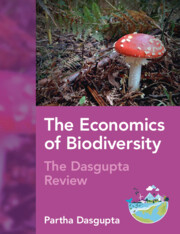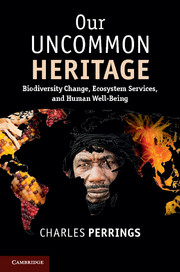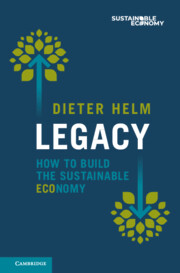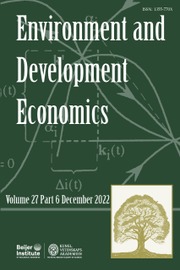The Economics of Biodiversity
We are part of Nature, not separate from it. We rely on Nature to provide us with food, water and shelter; regulate our climate and disease; maintain nutrient cycles and oxygen production; and provide us with spiritual fulfilment and opportunities for recreation and recuperation, which can enhance our health and well-being. Nature's constituents such as ecosystems and the biodiversity that are embodied in them are therefore assets. Yet Nature is more than an economic good: many recognise its intrinsic worth and argue that it has moral worth too. This landmark report explains the current state of play in relation to biodiversity loss and outlines a sustainable path to deal with this problem, one that will require us to change how we think, act and measure success. The report was originally commissioned and published by HM Treasury.
- Report on the economics of biodiversity by one of the world's leading economists
- Commissioned in 2019 by HM Treasury and supported by an advisory panel drawn from leading figures in the fields of public policy, science, economics, finance and business
- Calls for changes in how we think, act and measure economic success to protect and enhance our prosperity and the natural world
Product details
October 2024Paperback
9781009494304
550 pages
280 × 216 × 36 mm
1.72kg
Available
Table of Contents
- Foreword
- Preface
- Part I. Foundations: How we got to where we are
- 1. Nature as an asset
- 2. Biodiversity and ecosystem services
- 3. Biospheric disruptions
- 4. Human impact on the biosphere
- 4*. The bounded global economy
- 5. Risk and uncertainty
- 6. Laws and norms as social institutions
- 7. Human institutions and ecological systems, 1: Unidirectional externalities and regulatory policies
- 8. Human institutions and ecological systems, 2: Common pool resources
- 8* Management of CPRs: A formal model
- 9. Human institutions and ecological systems
- 10. Well-being across the generations
- 11. The content of well-being: Empirics
- 12. Valuing biodiversity
- 13. Sustainability assessment and policy analysis
- 13* Accounting prices and inclusive wealth
- Part II. Extensions:
- 14. Distribution and sustainability
- 15. Trade and the biosphere
- 16. Demand for provisioning services and its consequences
- 17. Managing Nature-related financial risk and uncertainty
- 18. Conservation of Nature
- 19. Restoration of Nature
- 20. Finance for sustainable engagement with Nature
- Part III. The road ahead: Chapter 21. Options for change
- Appendix.










